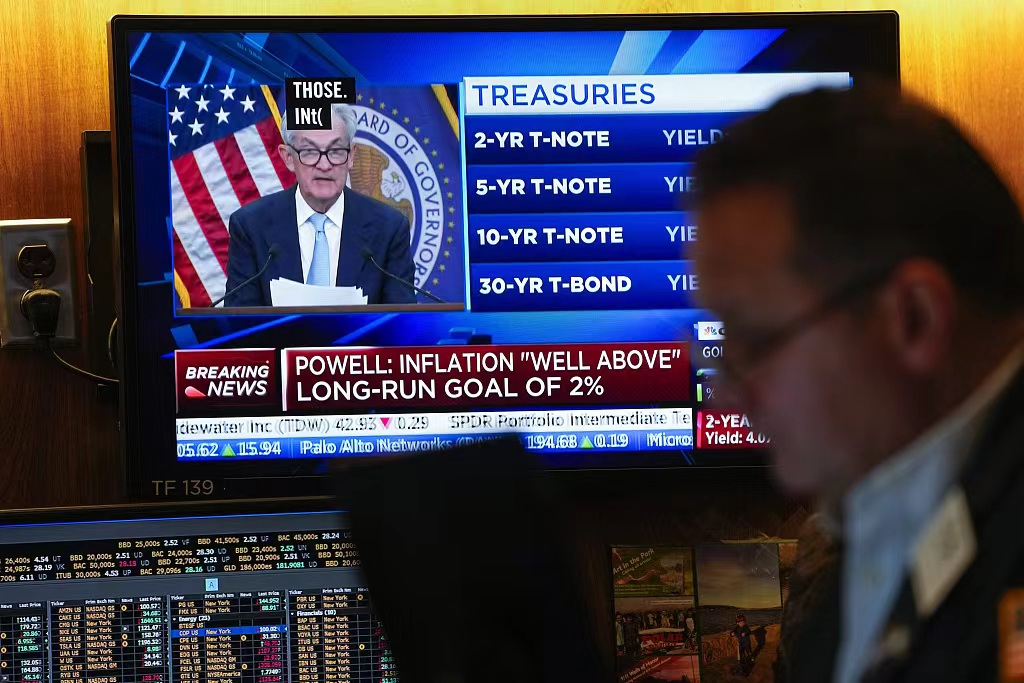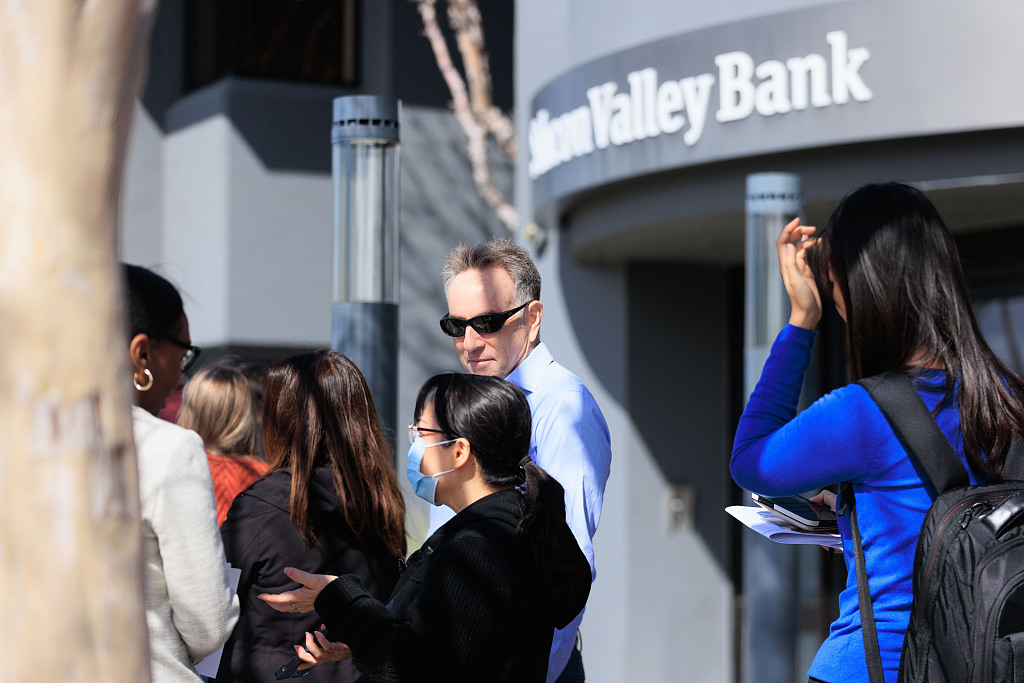
Monitor displays Federal Reserve chairman Jerome Powell's news conference as traders work at NYSE, on March 22, 2023. /CFP
Monitor displays Federal Reserve chairman Jerome Powell's news conference as traders work at NYSE, on March 22, 2023. /CFP
The U.S. Federal Reserve implemented its second interest rate hike of the year on Wednesday, marking the ninth increase within 13 months. The 25-basis point hike raised the target range to 4.75 percent-5 percent, the highest level since September 2007. The central bank made the move while citing high inflation, despite warnings of potential financial fallout caused by aggressive rate hikes.
The central bank governor Jerome Powell has not ruled out future rate increases, saying "it is too soon" to tell how monetary policy should respond to the extent of events in the banking industry in the past two weeks. However, Powell stated the central bank "no longer state that we anticipate that ongoing rate increases will be appropriate to quell inflation".
Sheila Bair, former chair of the Federal Deposit Insurance Corporation, the organization took over the Silicon Valley Bank, emphasized in her interview with CNN the importance of the Fed taking a break from its aggressive rate hikes to evaluate the consequences of its actions. Meanwhile, in a separate interview with CNBC, former Fed chairman nominee Judy Shelton echoed the sentiment, calling for a pause in rate hikes and critiquing the central bank's aggressive approach over the past year.
Furthermore, a recent Social Science Research Network study revealed that 186 American banks risk failure if half of their uninsured depositors suddenly withdrew their funds, concluding that the regulators would run out of money in such a scenario. This study was published shortly after the collapse of Silicon Valley Bank (SVB) on March 10, the worst American financial institution failure since 2008.
SVB, impacted by the rate hikes, was forced to sell $21 billion worth of securities at a loss of $1.8 billion. This incident led to a classic bank run, with depositors withdrawing $42 billion on March 9 alone, leading to the bankruptcy of SVB. Numerous economists have attributed these events to the Fed's rate hikes.

Customers queue to withdraw funds from Silicon Valley Bank after government intervention due to its collapse, on March 13, 2023. /CFP
Customers queue to withdraw funds from Silicon Valley Bank after government intervention due to its collapse, on March 13, 2023. /CFP
Is SVB depositor's money safe?
As the Fed weighs the pros and cons of a wait-and-see approach on the continuation of hikes, questions arise about whether the Fed overestimated the resilience of the U.S. financial system, and if SVB depositors' money is truly secure. Confusion intensified on Wednesday, as contradictory remarks from Powell and Treasury Secretary Janet Yellen, also Powell's predecessor, on the government's commitment to protecting depositors caused the three major U.S. stock indexes to drop approximately 1.6 percent on average. Powell said in the press conference that all depositor's saving are safe, while at the same time, Yellen testified in front of the congress that the government is not considering any plans to protect all banks' deposit without congressional approval.
Steve Chiavarone, senior portfolio manager at asset management firm Federated Hermes, commented on Bloomberg, "It's astounding that Yellen and Powell would have given contradictory messages on bank deposits at the same time." Mike Bailey, director of research at FBB Capital Partners, added, "The dueling messages are leaving investors in a state of confusion, as seen in the drop in the S&P."
In light of this uncertainty, Bill Ackman, who made a fortune during the 2008 financial crisis and founder of hedge fund Pershing Square, tweeted on Thursday, expecting an acceleration of deposit outflows from banks after Yellen "walked back" comments about guaranteeing all deposits and the Federal Reserve raised its benchmark rate. Ackman called for a temporary system-wide deposit guarantee to stop the bleeding and warned that prolonged uncertainty would damage smaller banks and make it harder to win back customers.